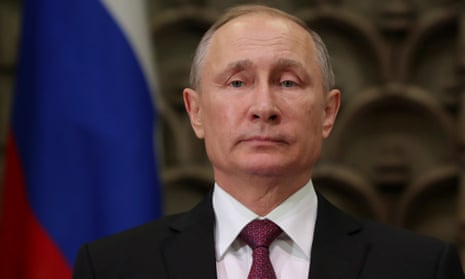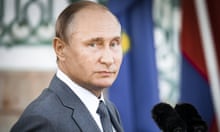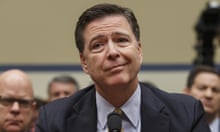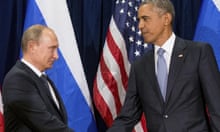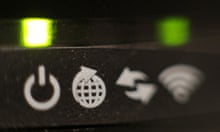Did Russian hackers try to influence the US election?
According to US intelligence officials, Russian hackers made repeated attempts before this year’s election to get into major US institutions, including the White House and the state department. The tactics were simple: send out volleys of phishing emails and hope that someone clicked.
One of those who did was John Podesta, the chairman of Hillary Clinton’s campaign. A New York Times investigation this week revealed that a Podesta aide spotted the dodgy email and forwarded it to a technician.
By mistake, however, the aide wrote that the message was OK. This allowed Moscow to access about 60,000 of Podesta’s emails. The hackers also breached the Democratic National Committee (DNC).
The emails were passed to the WikiLeaks website, which published them before the US election. The furore dominated the news bulletins and damaged Clinton’s campaign.
Security experts believe two Kremlin-connected groups were behind the hacks. One was was from the FSB spy agency, the other from Russian military intelligence. Amazingly, they appear to have operated independently.

Why was Clinton targeted?
Vladimir Putin has a visceral dislike of Clinton. As US secretary of state, Clinton was responsible for a doomed attempt to “reset” relations between Washington and Moscow.
In 2011-12, Russians took to the streets to protest against Putin’s decision to become president for the third time. Putin didn’t see this as a popular uprising; rather he believed Clinton had paid protesters to try to push him from power.
In the run-up to the US election, Russia’s state media portrayed Clinton as a warmonger. Its coverage of Donald Trump, by contrast, was favourable. On Thursday, Barack Obama’s press secretary, Josh Earnest, said he shared the view of US intelligence officials that Putin had directly authorised the hack. (Putin’s press spokesman dismissed the claim as absurd.)
Putin’s primary objective was probably to undermine the US election and create chaos. He may not have actually expected Trump to win. The president-elect is now likely to lift sanctions on Russia. This would delight the Kremlin.
Amercian intelligence agencies say the Russians also hacked the Republican National Committee’s computer systems, but they didn’t release anything.
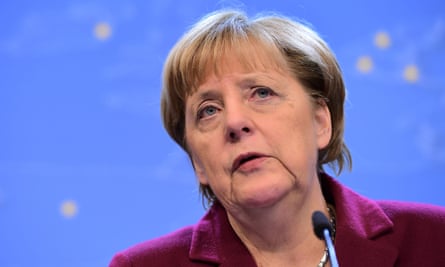
Has Russia done similar elsewhere?
Yes. German officials say a Russian hacking group was behind a major attack last year on the parliament in Berlin. The attack – like those in the US – involved phishing emails. They were sent from an account, un.org, which appeared to come from the United Nations. The hack may have gone on for six months.
There is evidence that the hackers have targeted Angela Merkel’s Christian Democratic party. German politicians have expressed fears that in the wake of US attacks the Kremlin may try to interfere in the 2017 general election. They are worried about Russian cyber-espionage activity, disinformation and fake news.
Internationally, Putin has had a terrific year, with the victory of Trump and the election of pro-Kremlin leaders in Bulgaria and Moldova. Merkel is the Europe’s most powerful politician, personally sceptical of Putin and an advocate of Russian sanctions. She is, therefore, an obvious target.
In Soviet times, the KGB used what it called active measures to destabilise its capitalist enemies. Cyberspace offers new global opportunities for old tactics.
How could the Obama administration retaliate?
Obama has promised to respond to Russian hacking “at a time and place of our choosing”. Speaking on Thursday, he said that some of the US’s answer “may be explicit and publicised; some of it may not be”.
His administration has already imposed wide-ranging sanctions on Russia and on Putin’s friends, in the wake of Moscow’s annexation of Crimea and shadowy invasion of eastern Ukraine. So what else?
One tantalising option is for the US to reveal what it knows of Putin’s secret wealth. Officially, Russia’s president is a man of ordinary means. In reality, Putin is widely believed to be worth many billions of dollars, with the fortunes of his close allies in effect his.
In April, an international group of journalists including the Guardian revealed that Putin’s best friend, a cellist called Sergei Roldugin, had $2bn (£1.6bn) going into secret offshore bank accounts. This was one leaked scheme. The CIA almost certainly has details of others.
Publication would not force Putin from power. But it might embarrass him and provide further proof that Trump’s friend in Moscow presides over what has been dubbed a mafia state.
